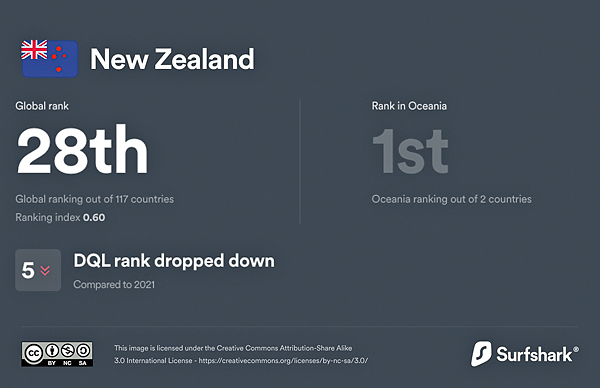Auckland, 4 October – Surfshark’s Digital Quality of Life Index 2022 ranks New Zealand 28th in the world by overall digital wellbeing. The country has dropped by five positions since last year’s edition, falling from 23rd to 28th, but still surpassed Australia: https://surfshark.com/dql2022
The study covers 92% of the global population and indexes 117 countries by looking at five fundamental pillars of digital life – internet affordability and quality, e-infrastructure, e-security, and e-government.
Below you’ll see the key findings about New Zealand: New Zealand’s internet affordability ranks 43rd in the world. To afford mobile internet, New Zealanders have to work 46 times more (3 min 45 s/month) than Israeli citizens, for whom the most affordable 1GB package costs only 5 s of work monthly. Meanwhile, fixed broadband costs New Zealand citizens around 2 hours 3 minutes of their precious working time each month.
New Zealand’s internet quality, considering internet speed, stability, and growth, ranks 17th in the world and is 37% better than the global average.
Since last year, mobile internet speed in New Zealand has improved by 19.4% (14.8 Mbps), and fixed broadband speed has grown by 21% (32.4 Mbps).
Compared to Australia, New Zealand’s mobile internet is 34% slower, while broadband is 2 times faster. Out of all index pillars, New Zealand’s weakest spot is internet affordability, which needs to improve by 1050% to match the best-ranking country’s result (Israel’s). Global overview: Overall, 7 out of 10 highest-scoring countries are in Europe, which has been the case for the past three years. Israel ranks 1st in DQL 2022 pushing Denmark to second place after its two-year lead. Germany ranks 3rd, and France and Sweden round up the top five of the 117 evaluated nations. Congo DR, Yemen, Ethiopia, Mozambique, Cameroon are the bottom five countries.
The 2022 DQL research examined more than 7.2 billion people regarding five core pillars and 14 underpinning indicators that provide a comprehensive measure. The study is based on the United Nations open-source information, the World Bank, Freedom House, the International Communications Union, and other sources. This year’s study includes seven (6%) more countries than DQL 2021, most of which are African countries.
The final 2022 Digital Quality of Life report and an interactive country comparison tool can be found here: https://surfshark.com/dql2022









